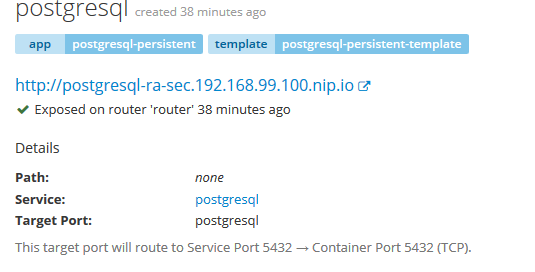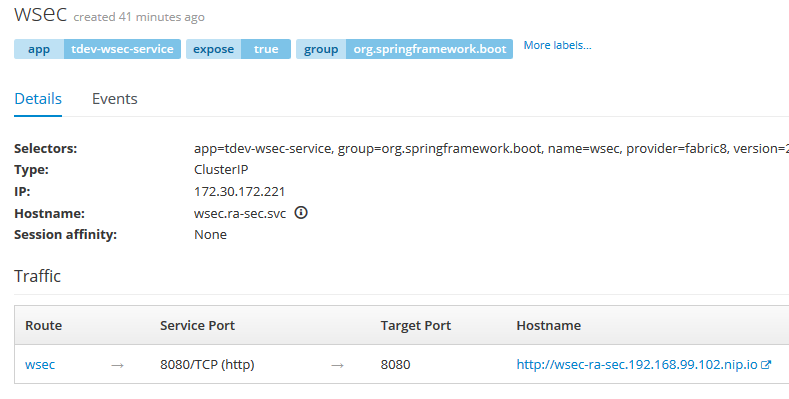I've create a postgresql instance into my openshift origin v3. It's running correctly, however I don't quite figure out why I am not able to reach it remotely.
I've exposed a route:
$oc get routes
postgresql postgresql-ra-sec.192.168.99.100.nip.io postgresql postgresql None
$ oc get services
NAME TYPE CLUSTER-IP EXTERNAL-IP PORT(S) AGE
postgresql ClusterIP 172.30.59.113 <none> 5432/TCP 57m
This is my route:
I'm trying to get access to this instance from an ubuntu os. I'm trying to get access using psql:
$ psql --host=postgresql-ra-sec.192.168.99.100.nip.io --dbname=tdevhub
psql: could not connect to server: Connection refused
Is the server running on host "postgresql-ra-sec.192.168.99.100.nip.io" (192.168.99.100) and accepting
TCP/IP connections on port 5432?
Otherwise:
$ psql --host=postgresql-ra-sec.192.168.99.100.nip.io --port=80 --dbname=tdevhub
psql: received invalid response to SSL negotiation: H
I've checked dns resolution, and it seems to work correctly:
$ nslookup postgresql-ra-sec.192.168.99.100.nip.io
Server: 127.0.0.53
Address: 127.0.0.53#53
Non-authoritative answer:
Name: postgresql-ra-sec.192.168.99.100.nip.io
Address: 192.168.99.100
EDIT
What about this?
Why is there this redirection? Could I try to change it before port-forwarding?


